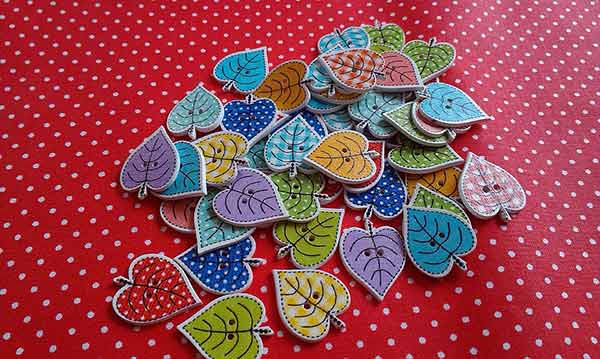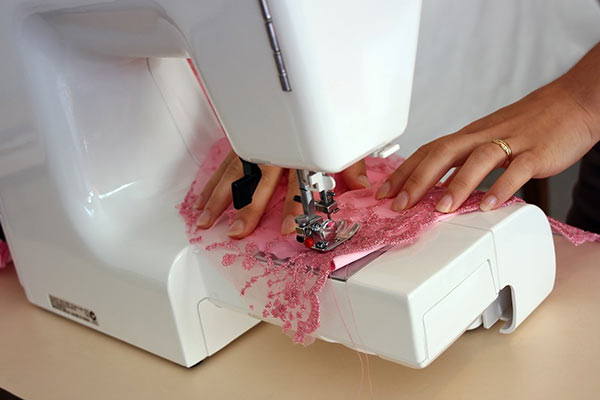Teaching a Child to Sew Made Easy with 10 Smart Tips
Nothing feels more satisfying than getting your family to know and to love your hobby along with you. This is why I have been actively engaging my children with sewing related projects and games since they were very young. Sharing my passion with them and seeing how they enjoy completing their own small projects is amazingly fulfilling.
If you are like me and want to teach your children to sew, here are some basic tips which can help you make them better and actually enjoy it as well:
Table of Contents
- 1 Don’t be scared to start at an early age
- 2 Let them use the real thing
- 3 Don’t hurry them
- 4 Give them the opportunity to choose their own projects
- 5 Repetition and practice makes perfect
- 6 Don’t use flimsy tissue for the patterns
- 7 Draw the sewing lines for them
- 8 Teach the child to use the fabric in an efficient way
- 9 Use thick thread when sewing by hand
- 10 Turn it into a fun experience
Don’t be scared to start at an early age
Of course, all children are different, so there is no set age at which you should start introducing your child to the wonderful world of sewing, but the earlier on you begin – the more likely that the knowledge and the skills will stick. Depending on the child, you can let them start showing them the basics about using a machine as early as 4 years old, but the recommended age is about 6 years old. When the child turns 8 it is usually OK to let them do their own sewing project without supervision. Step number one is to make sure that you carefully guide them through the safety details! Start off by teaching the kid to steer the fabric while working the pedal. Make sure that they keep their fingers away from the needle at all times, and teach them to take their foot off the pedal as soon as you stay “stop”.
Let them use the real thing

Don’t hurry them
Make sure that you teach your child to sew slowly until they get the hang of it. Slower is safer and is much easier to master. You may feel the urge to rush them, but be patient – they will learn and gradually they will begin sewing at a comfortable speed.
Give them the opportunity to choose their own projects
Engage your children by letting them pick the fabric, the pattern and the different colors.Yes, their first sewing projects may look quite weird and outlandish, but it is much more likely that your child will enjoy working on a project which it has designed by itself.
Guide the child when they are planning on their project by pointing out the easier fabrics and designs to work with. This will help them master the art of sewing without the frustration of messing up when working with some of the more complicated fabrics and designs. Give them a choice between easy fabrics, such as quilting cotton or fleece for starters.
Repetition and practice makes perfect
Don’t stop your child from making the same type of project over and over again. If they are having fun with a particular design then let them work on it again and again. Soon you will see how much your child is improving, and how each project gets better!
Don’t use flimsy tissue for the patterns
It is much easier to use cardboard for tracing and cutting the patterns for your kids. This will make the task of sewing and completing a project much easier for your young child.
Draw the sewing lines for them
Make the task easier for your child by drawing actual sewing lines on the fabric for them. Young children may find it quite challenging to hold a straight line when sewing, especially if it is imaginary, which is why my recommendation is to actually draw the lines on the fabric instead.
Once a child gets old enough and becomes comfortable with the kid-friendly sewing machine and with using the presser foot for guidance you can let them sew without needing to draw out each line for them.
Teach the child to use the fabric in an efficient way
All kids seem to love cutting a single pattern tight in the middle of a piece of fabric. This is why, it is essential to explain and show them how to position the different pieces on the fabric, so that they can cut more of them from on single piece of fabric.
Use thick thread when sewing by hand
If you are teaching the child to sew by hand – make sure you use a thick thread. It is easier to work with as it doesn’t get tangled and knotted up like regular thread. So, use upholstery or hand quilting thread when showing your child how to sew. Use an embroidery needle which has a larger eye in order to make the task of sewing by hand easier for your child. It is a good idea to leave the thread single and without a knot, so that the child can easily go back and remove a bad stitch and easily re-thread the needle and go on after that.
Turn it into a fun experience
Don’t forget to have fun! Children love games and a great challenge, so make sure that when you are working on a sewing project with your child – you turn it into a fun experience. The more they get to enjoy the process – the better they will become with their projects. Remember the joy you yourself experience when you are working on a new project, and try to get your child to experience the same sense of happiness and satisfaction when working on their sewing projects!



